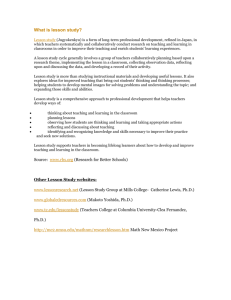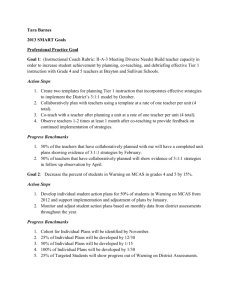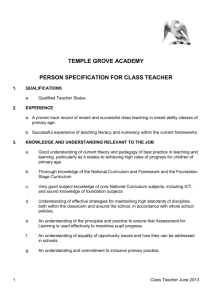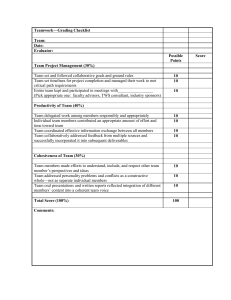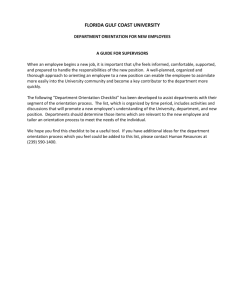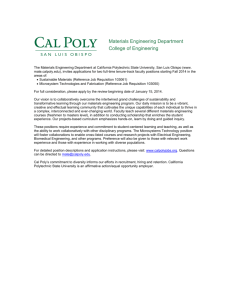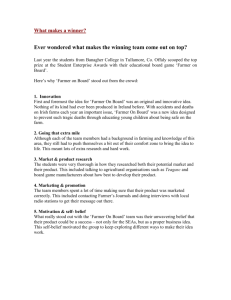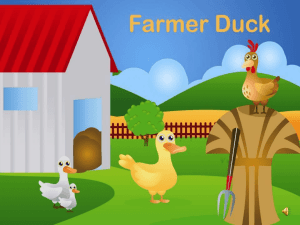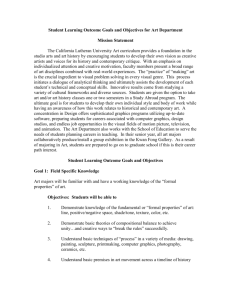paul farmer
advertisement
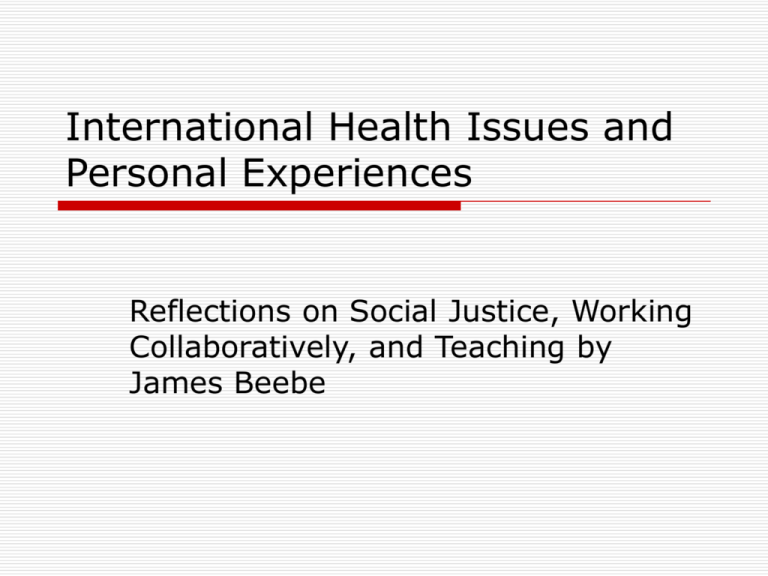
International Health Issues and Personal Experiences Reflections on Social Justice, Working Collaboratively, and Teaching by James Beebe Interest in international health Issues illustrated by the work of Paul Farmer Origins in Peace Corps Experience Related to: Commitment to social justice Passion for working collaboratively across national and cultural boundaries Love for teaching Relevance of Rapid Assessment PAUL FARMER PAUL FARMER Pathologies of Power PAUL FARMER Pathologies of Power “This is an angry and a hopeful book. It has both passion and authority.” “He combines an unflinching moral stance--that the poor deserve health care just as much as the rich do--with scientific expertise and boundless dedication.” “illuminates the pathologies of a world economy that has lost its soul” PAUL FARMER “superb physician, a penetrating anthropologist, and a prophet of social justice” PAUL FARMER Multi-drug resistant tuberculosis, AIDS , and human rights violations PAUL FARMER Reporter: With so much suffering, is it sometimes hard to maintain a positive outlook? Paul Farmer: Very difficult. It’s important to see the little victories, which are not so little to those who are served by these projects. PAUL FARMER Two issues with Paul Farmer Assumption that medical care is provided by MDs and no discussion of the role of others providers of primary health care. Assumption that the traditional approach of anthropologists, including long field work, is the only approach, with apologies for using more rapid approaches. PEACE CORPS VOLUNTEER Peace Corps, Public School Castillejos, Zambales, Philippines Peace Corps Teaching, Bontoc Community College Peace Corps Planting rice, harvesting the 2nd try Peace Corps Developing curriculum materials Peace Corps Even though only a Peace Corps Volunteer for four and a half years, the experience has had a significant impact on who I am and who I am in the process of becoming. Peace Corps Experiences with on health issues Stupid Deaths and Angels Cholera Vaccinations and Tradeoffs Rabies and Rural Reality Infections and the Environment International Health Interest based on three factors: Commitment to social justice Passion for working collaboratively across national and cultural boundaries Love for teaching COMMITMENT TO SOCIAL JUSTICE COMMITMENT TO SOCIAL JUSTICE My belief: Justice not Compassion Motivation for action should not be based on compassion Compassion implies action is optional Those who believe that charity is the answer often regard those needing charity as intrinsically inferior COMMITMENT TO SOCIAL JUSTICE According to Paul Farmer There is an enormous difference between seeing people as the victims of innate shortcomings and seeing them as the victims of structural violence. COMMITMENT TO SOCIAL JUSTICE Health as a fundamental human right I agree with Paul Farmer that health is a fundamental human right. Farmer contrasts this with a perspective that health is a desirable outcome to be attained through the purchase of the right goods and services. “The commodification of medicine invariably punishes the vulnerable.” COMMITMENT TO SOCIAL JUSTICE I join Paul Farmer in concluding: Social justice requires a preferential option for the poor. Conditions of the poor are not only unacceptable but are the result of structural violence that is humanmade. Working for social justice requires working with the poor as they struggle to change their situation. PASSION FOR WORKING COLLABORATIVELY ACROSS NATIONAL AND CULTURAL BOUNDARIES WORKING COLLABORATIVELY, Dissertation research on farmers Barrio Gugo, Calumpit, Bulacan, Philippines WORKING COLLABORATIVELY, Gugo Dissertation research on farmers WORKING COLLABORATIVELY, Gugo Dissertation research on farmers WORKING COLLABORATIVELY, Gugo Dissertation research on farmers WORKING COLLABORATIVELY, Gugo Dissertation research on farmers WORKING COLLABORATIVELY, Gugo Dissertation research on farmers WORKING COLLABORATIVELY, Gugo Dissertation research on farmers WORKING COLLABORATIVELY, GUGO Experiences with health issues ORT and small but significant innovation TB and the ability to sustain treatment Pneumonia and access to medical care WORKING COLLABORATIVELY Umm Hijliij Breimya, El Obeid, Northern Kordofan, Sudan WORKING COLLABORATIVELY, UMM HIJLIIJ Rapid Assessment WORKING COLLABORATIVELY, UMM HIJLIIJ Rapid Assessment WORKING COLLABORATIVELY, UMM HIJLIIJ Rapid Assessment WORKING COLLABORATIVELY, UMM HIJLIIJ Rapid Assessment WORKING COLLABORATIVELY, UMM HIJLIIJ Rapid Assessment WORKING COLLABORATIVELY, UMM HIJLIIJ Rapid Assessment WORKING COLLABORATIVELY, SUDAN Experiences with health issues Malaria and the limits of prevention Ebola Fever and accidental exposure Schistosomiasis and culture Hepatitis and the difficulty of diagnosis Rapid Assessment Process RAP James Beebe Gonzaga University 2005 RAP RAP is intensive, team-based ethnographic inquiry using triangulation and iterative data analysis and additional data collection to quickly develop a preliminary understanding of a situation from the insider’s perspective. Results can be produced in • as few as four day, • but usually requires several weeks. The RAP team should seek out • • • • the poorer, less articulate, more upset, and those least like the members of the RAP team. Stories NOT Answers The goal is to get the insiders to tell their stories and NOT answer the questions of the outsiders. Successful RAP • • • Members of the RAP team need to recognize: They don’t know enough to ask questions, They don’t know enough to provide the answers, but They do know enough to want to empower others to solve their own problems. Iterative Analysis and Additional Data Collection Time is divided between • blocks used for collecting information and • blocks when the team does data analysis and considers changes in the next round of data collection. RAPID ASSESSMENT PROCESS: An Introduction (2001) http://www.rapidassessment.net
